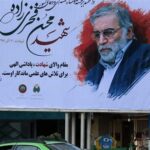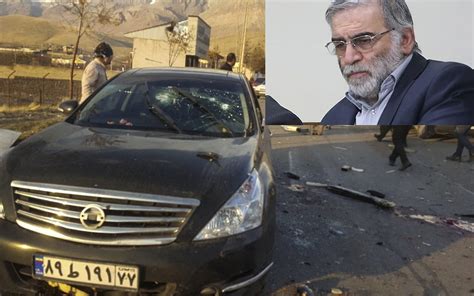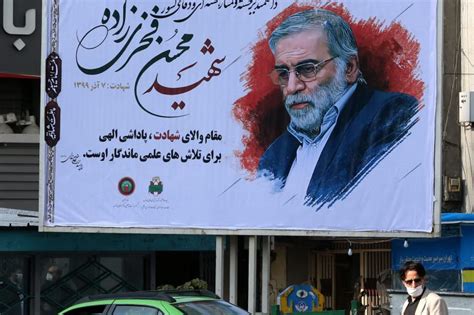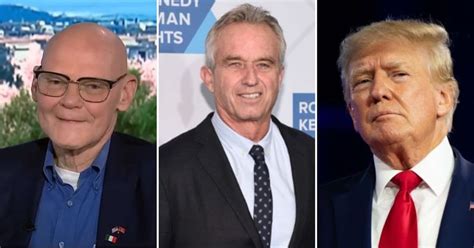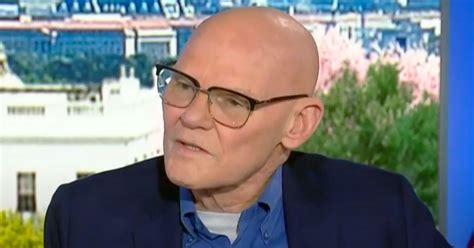
James Carville, a veteran Democratic strategist, sharply criticized the persistence of conspiracy theories surrounding John F. Kennedy Jr.’s death, arguing that these baseless beliefs have real-world consequences and have become as influential within certain circles as the actual composition of a presidential cabinet. Carville lamented the pervasiveness of such misinformation and its potential to incite violence, particularly highlighting the disturbing notion that JFK Jr., who died in a plane crash in 1999, is still alive and poised to reappear, potentially as a political figure.
Democratic strategist James Carville has voiced strong concerns about the proliferation of conspiracy theories surrounding the death of John F. Kennedy Jr., asserting that these unfounded beliefs have taken on a life of their own, rivaling the importance of legitimate political matters. In an interview, Carville emphasized the tangible harm caused by such misinformation, particularly the dangerous idea that JFK Jr. is still alive and will return to the political stage.
“It’s amazing to me how many people are into this JFK Jr. thing,” Carville stated, underscoring the breadth of the phenomenon. He added, “It’s rivaling a cabinet appointment for some people in terms of importance.” This comparison highlights Carville’s alarm at how deeply ingrained these beliefs have become within certain segments of the population.
Carville pointed to the potential for these conspiracy theories to incite violence, referencing instances where individuals motivated by false beliefs have taken harmful actions. While not explicitly detailing specific incidents, his remarks allude to the broader concern that misinformation can radicalize individuals and lead to real-world harm. The idea that JFK Jr. will reappear, potentially as a running mate to a prominent political figure, has fueled intense speculation and, in some cases, extreme behavior among believers.
The enduring appeal of the JFK Jr. conspiracy theories underscores a broader issue of trust in institutions and the susceptibility of individuals to misinformation, particularly in the digital age. The ease with which false narratives can spread online, combined with a growing distrust of traditional media and government sources, has created fertile ground for conspiracy theories to take root.
The Enduring Allure of JFK Jr. Conspiracy Theories
The conspiracy theories surrounding JFK Jr.’s death have persisted for over two decades, fueled by a combination of factors including nostalgia for the Kennedy era, distrust of official narratives, and the inherent human desire to find meaning in tragedy. John F. Kennedy Jr., the son of President John F. Kennedy, was a charismatic figure who captured the imagination of the American public. His untimely death in a plane crash at the age of 38, along with his wife Carolyn Bessette-Kennedy and her sister Lauren Bessette, shocked the nation and left a void in the collective consciousness.
The official explanation for the crash, attributed to pilot error and poor visibility conditions, has been met with skepticism by some, who point to perceived inconsistencies in the investigation and the Kennedy family’s history of tragedy as reasons to doubt the official account. These doubts have given rise to a variety of conspiracy theories, ranging from claims that the plane was sabotaged to assertions that JFK Jr. faked his own death and is living in hiding.
One of the most prominent and persistent theories is the belief that JFK Jr. is still alive and will eventually return to the political stage, potentially as a vice-presidential candidate or even a presidential contender. This theory often intertwines with other conspiracy narratives, such as QAnon, which posits the existence of a deep state cabal and the imminent arrival of a “storm” that will expose and punish the perpetrators.
The appeal of these theories lies in their ability to offer a sense of hope and purpose to those who feel disenfranchised or disillusioned with the current state of affairs. The idea that JFK Jr., a symbol of American idealism and potential, will return to restore order and justice resonates with individuals who yearn for a return to a perceived golden age.
However, as Carville points out, these beliefs can have dangerous consequences. The unwavering faith in the JFK Jr. conspiracy theory has led some individuals to take extreme actions, including harassing political figures and even engaging in acts of violence. The potential for further radicalization and violence remains a serious concern.
The Role of Social Media and Misinformation
The spread of JFK Jr. conspiracy theories has been significantly amplified by the rise of social media and the proliferation of online platforms that allow for the rapid dissemination of misinformation. These platforms often lack effective mechanisms for combating false narratives, and algorithms can inadvertently promote conspiracy theories by recommending them to users who have shown interest in similar content.
The echo chamber effect, where individuals are primarily exposed to information that confirms their existing beliefs, further exacerbates the problem. People who subscribe to the JFK Jr. conspiracy theory are likely to encounter content that reinforces their beliefs, while encountering little or no information that challenges them. This can lead to a hardening of beliefs and a decreased willingness to engage with alternative perspectives.
The lack of media literacy among some segments of the population also contributes to the spread of misinformation. Many individuals lack the critical thinking skills necessary to evaluate the credibility of online sources and distinguish between fact and fiction. This makes them more vulnerable to being swayed by persuasive but ultimately false narratives.
The challenge of combating JFK Jr. conspiracy theories, and misinformation more generally, requires a multi-faceted approach. This includes promoting media literacy, strengthening fact-checking efforts, and holding social media platforms accountable for the content that is shared on their sites. It also requires addressing the underlying factors that make people susceptible to conspiracy theories, such as distrust of institutions and feelings of disenfranchisement.
The Political Implications
The enduring popularity of the JFK Jr. conspiracy theories has implications for the political landscape. These beliefs can influence voting behavior, shape political discourse, and even contribute to political polarization.
Individuals who believe that JFK Jr. is still alive and will return to politics are likely to be more receptive to candidates who espouse anti-establishment views and promise to challenge the status quo. They may also be more likely to support candidates who promote other conspiracy theories, such as those related to election fraud or the COVID-19 pandemic.
The spread of JFK Jr. conspiracy theories can also contribute to political polarization by creating a climate of distrust and animosity between different groups. When individuals believe that their political opponents are part of a deep state cabal or are engaged in nefarious activities, it becomes more difficult to find common ground and engage in constructive dialogue.
The political implications of JFK Jr. conspiracy theories should not be underestimated. These beliefs can have a tangible impact on the political process and can contribute to the erosion of trust in democratic institutions.
Addressing the Root Causes
Addressing the root causes of JFK Jr. conspiracy theories requires a comprehensive approach that tackles the underlying factors that make people susceptible to misinformation. This includes:
- Restoring trust in institutions: Rebuilding trust in government, media, and other institutions is essential for combating conspiracy theories. This requires transparency, accountability, and a commitment to providing accurate and reliable information.
- Promoting media literacy: Equipping individuals with the critical thinking skills necessary to evaluate the credibility of online sources and distinguish between fact and fiction is crucial. Media literacy education should be integrated into school curricula and made available to adults through community-based programs.
- Addressing economic inequality: Economic inequality can contribute to feelings of disenfranchisement and resentment, making people more susceptible to conspiracy theories. Addressing economic inequality through policies that promote fair wages, affordable housing, and access to education and healthcare can help to reduce the appeal of these narratives.
- Strengthening social connections: Social isolation and loneliness can make people more vulnerable to conspiracy theories. Strengthening social connections through community-based programs and initiatives can help to combat these feelings and promote a sense of belonging.
- Holding social media platforms accountable: Social media platforms have a responsibility to combat the spread of misinformation on their sites. This requires implementing effective mechanisms for identifying and removing false narratives, as well as promoting media literacy and critical thinking skills among users.
Conclusion
James Carville’s warning about the persistence and influence of JFK Jr. conspiracy theories is a timely reminder of the dangers of misinformation and the need to address the underlying factors that make people susceptible to these narratives. The enduring appeal of these theories underscores the importance of restoring trust in institutions, promoting media literacy, and strengthening social connections. Only by addressing these root causes can we hope to combat the spread of misinformation and protect the integrity of our democratic institutions. The consequences of inaction could be severe, potentially leading to further radicalization, violence, and erosion of trust in the foundations of our society. The need for a proactive and comprehensive approach is therefore paramount. The issue should be tackled through education, social programs, and responsible regulation of online platforms.
Frequently Asked Questions (FAQ)
1. What is the JFK Jr. conspiracy theory that James Carville is referring to?
The JFK Jr. conspiracy theory revolves around the belief that John F. Kennedy Jr., who died in a plane crash in 1999, is still alive and will eventually return to the political stage. Proponents of this theory often believe he will reappear as a political figure, possibly as a vice-presidential candidate, to support a specific political agenda or to expose a supposed deep state cabal. This belief is often interwoven with other conspiracy narratives, like QAnon.
2. Why is James Carville concerned about the JFK Jr. conspiracy theory?
Carville is concerned because he believes these baseless beliefs have real-world consequences, including the potential to incite violence. He argues that the persistence of these theories rivals the importance people place on legitimate political matters, such as cabinet appointments, indicating a dangerous level of influence. He fears that the false hope and expectations created by these theories can lead to radicalization and harmful actions by believers.
3. How do social media platforms contribute to the spread of the JFK Jr. conspiracy theory?
Social media platforms amplify the spread of the JFK Jr. conspiracy theory through algorithms that recommend similar content to users who have shown interest in it. The lack of effective mechanisms for combating false narratives, combined with the echo chamber effect where individuals are primarily exposed to information confirming their existing beliefs, further exacerbates the problem. The platforms often lack sufficient media literacy initiatives, leaving many users unable to distinguish between credible information and misinformation.
4. What can be done to combat the spread of the JFK Jr. conspiracy theory and other forms of misinformation?
Combating misinformation requires a multi-faceted approach, including:
- Restoring trust in institutions through transparency and accountability.
- Promoting media literacy to equip individuals with critical thinking skills.
- Addressing economic inequality to reduce feelings of disenfranchisement.
- Strengthening social connections to combat isolation and loneliness.
- Holding social media platforms accountable for the content shared on their sites.
- Fact-checking initiatives to debunk false claims and provide accurate information.
- Educational programs to inform the public about the dangers of conspiracy theories.
5. What are the potential political implications of the JFK Jr. conspiracy theory?
The JFK Jr. conspiracy theory can influence voting behavior by making believers more receptive to anti-establishment candidates and those who promote other conspiracy theories. It can also contribute to political polarization by creating a climate of distrust and animosity between different groups, making it difficult to find common ground and engage in constructive dialogue. The erosion of trust in democratic institutions is a significant concern arising from the widespread belief in such theories.
Extended Analysis and Background Information:
The death of John F. Kennedy Jr., along with his wife Carolyn Bessette-Kennedy and her sister Lauren Bessette, on July 16, 1999, remains a deeply resonant event in American history. The tragedy not only cut short the life of a prominent public figure but also seemed to echo the historical misfortunes that had plagued the Kennedy family. This historical context, combined with the inherent mystery surrounding any aviation accident, has made the event a fertile ground for speculation and conspiracy theories.
The official investigation by the National Transportation Safety Board (NTSB) concluded that the probable cause of the accident was pilot error. According to the NTSB report, Kennedy, who was piloting the Piper Saratoga aircraft, failed to maintain control of the plane during a night flight over water, likely due to spatial disorientation. The report also cited haze and reduced visibility as contributing factors. Kennedy was not instrument-rated, meaning he was not certified to fly in conditions where he could not see the horizon.
Despite the NTSB’s findings, various alternative theories have emerged over the years, questioning the official narrative. These theories range from claims that the plane was sabotaged by political adversaries to assertions that Kennedy faked his own death to escape the pressures of public life. Some conspiracy theorists even suggest that Kennedy was assassinated to prevent him from entering politics and challenging the established power structure.
The lack of conclusive evidence and the presence of some unanswered questions have fueled these speculations. For instance, some researchers have pointed to discrepancies in radar data and witness testimonies as reasons to doubt the NTSB’s findings. Others have questioned Kennedy’s flying experience and decision-making on the night of the crash.
QAnon and the Resurgence of JFK Jr. Conspiracy Theories
In recent years, the JFK Jr. conspiracy theory has experienced a resurgence, largely due to its adoption by the QAnon movement. QAnon is a far-right conspiracy theory that posits the existence of a deep state cabal of Satan-worshipping pedophiles who are secretly running the government. QAnon believers believe that former President Donald Trump was fighting this cabal and that a “storm” is coming that will expose and punish the perpetrators.
Within the QAnon community, the JFK Jr. conspiracy theory has taken on a particularly prominent role. QAnon believers often assert that JFK Jr. is not dead but is secretly working with Trump to expose the deep state. They believe that he will eventually reappear and play a key role in the “storm.” This belief has led some QAnon followers to gather at public events, such as Trump rallies, holding signs and banners proclaiming JFK Jr.’s imminent return.
The QAnon adoption of the JFK Jr. conspiracy theory has amplified its reach and influence, bringing it to a wider audience and giving it a new level of credibility among certain segments of the population. The intersection of these two conspiracy narratives has created a potent mix of misinformation and disinformation that poses a significant challenge to public discourse and democratic institutions.
The Psychological Appeal of Conspiracy Theories
Understanding the psychological appeal of conspiracy theories is crucial for addressing their spread. Conspiracy theories often provide a sense of meaning and control in a world that can seem chaotic and unpredictable. They offer simple explanations for complex events, allowing individuals to make sense of uncertainty and reduce feelings of anxiety.
Conspiracy theories can also fulfill a need for belonging and validation. By subscribing to a conspiracy theory, individuals can become part of a community of like-minded believers, sharing their beliefs and experiences. This sense of belonging can be particularly appealing to those who feel isolated or marginalized.
Furthermore, conspiracy theories can provide a sense of empowerment. By uncovering the “truth” behind hidden agendas and secret plots, individuals can feel like they are gaining an edge over those who are unaware. This sense of empowerment can be particularly appealing to those who feel powerless or disenfranchised.
However, the psychological benefits of conspiracy theories come at a cost. These beliefs can lead to distrust of authority, social isolation, and even violence. It is therefore important to address the underlying psychological needs that conspiracy theories fulfill in a way that does not promote misinformation and harm.
The Role of Education and Critical Thinking
Education and critical thinking are essential tools for combating the spread of conspiracy theories. By teaching individuals how to evaluate evidence, identify biases, and distinguish between fact and fiction, we can empower them to resist misinformation and make informed decisions.
Media literacy education should be integrated into school curricula at all levels. This education should teach students how to critically analyze news sources, identify fake news, and understand the role of algorithms in shaping online content.
Critical thinking skills should also be promoted in other areas of life. Encouraging individuals to question assumptions, seek out diverse perspectives, and engage in respectful dialogue can help to foster a more informed and rational public discourse.
Furthermore, it is important to provide access to accurate and reliable information. This includes supporting independent journalism, funding fact-checking organizations, and promoting scientific literacy.
The Need for a Collaborative Approach
Combating the spread of conspiracy theories requires a collaborative approach involving governments, social media platforms, educational institutions, and civil society organizations.
Governments can play a role by regulating social media platforms, funding media literacy education, and supporting fact-checking initiatives. Social media platforms can implement more effective mechanisms for identifying and removing false narratives, as well as promoting media literacy and critical thinking skills among users. Educational institutions can integrate media literacy education into their curricula and promote critical thinking skills across all disciplines. Civil society organizations can organize community-based programs to combat misinformation and promote informed civic engagement.
By working together, these stakeholders can create a more resilient and informed society that is less vulnerable to the spread of conspiracy theories and other forms of misinformation.
Ethical Considerations for Journalists Covering Conspiracy Theories
Journalists covering conspiracy theories face a unique set of ethical challenges. On one hand, they have a responsibility to inform the public about the existence and spread of these beliefs. On the other hand, they must avoid inadvertently amplifying or legitimizing them.
When reporting on conspiracy theories, journalists should:
- Clearly label them as such and avoid presenting them as factual.
- Provide context and background information to help readers understand the origins and motivations behind these beliefs.
- Debunk false claims with accurate and reliable information.
- Avoid giving undue attention to fringe figures and extremist groups.
- Focus on the real-world consequences of conspiracy theories, such as violence and social disruption.
- Be mindful of the potential to inadvertently amplify or legitimize conspiracy theories by giving them excessive coverage.
By adhering to these ethical guidelines, journalists can play a crucial role in informing the public about the dangers of conspiracy theories without contributing to their spread.
Moving Forward: A Call to Action
The persistence of JFK Jr. conspiracy theories serves as a stark reminder of the challenges we face in combating misinformation and protecting the integrity of our democratic institutions. Addressing these challenges requires a sustained and concerted effort involving all sectors of society.
We must:
- Recommit ourselves to the principles of truth, accuracy, and objectivity.
- Support independent journalism and fact-checking organizations.
- Promote media literacy and critical thinking skills.
- Hold social media platforms accountable for the content shared on their sites.
- Engage in respectful dialogue with those who hold different beliefs.
- Stand up against misinformation and hate speech.
By taking these actions, we can create a more informed, resilient, and united society that is capable of overcoming the challenges of the 21st century. The fight against misinformation is a fight for the future of democracy. We must all do our part to ensure that truth and reason prevail. The cost of inaction is simply too high.



